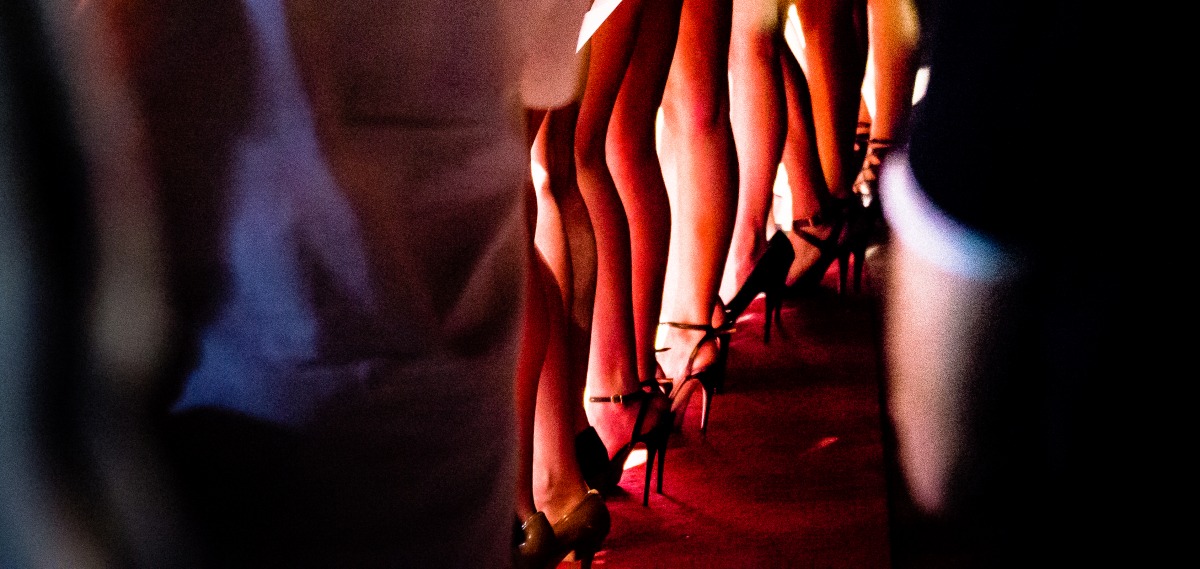Spolia Opima
Models, slender and famished as cheetahs,
Shed their imperial haute couture—
Already in sweatpants, they hail their cabs
Behind the Grand Palais before
Applause dies down inside around
The vacant runway. Afternoon sunlight’s
Lambent overhead on friezes of Lutetian Limestone.
Violinists grimace at their scores—
Haydn, Hollywood, the B’s and Broadway hits,
Rehearsal house-lights hard above,
Rosin fine as cocaine settling on the boards.
They’re not arrogant. They’re bored.
They’re paid to make the beauty go.
Why else? We all make beauty pay.
Gourmands’ are all aglow as it arrives—
Voila, another flambé. Cherries, drenched
In century-old brandy, burn like coals.
The waiter itches to check his phone. He grins.
I’m given to hyperbole, I know,
But something’s got to me. It’s all around.
You have to learn to make it pay you back.
The bathroom’s OUT OF ORDER. Sewage seeps
Into the restaurant. The manager’s
Frantic, alone today. The line’s
Become a mob. A voice from an SUV
Barks at the drive-through speaker. In the back,
Children cheer a whirl of color on a screen.
I feel the boredom underneath the beauty.
It’s weird, and getting desperate these days.
In auction rooms, the arms go up. And . . . sold.
The next exquisite investment’s on the block.
The views—the hills, the seas—are still pristine for those
Who can afford the heights. Who’s this beauty for?
Beauty’s boring. I do go on and on,
Don’t I? Oh, you have a nosebleed.
Here, drip some in my drink. See this?
Flick this switch. Now listen. Someone will scream.
Crypt
The cities burn above me as I sleep.
I’m walled by trophies looted long ago
Along the routes of conquest, centuries
Of funereal remains, gold that’s dimmed
By dust and bound by web, as valueless
As the dirt that slowly takes it back again.
I wake and wonder where I am. I move
My arm and bottles clink. I raise my head
Enough to see I must have drunk them all.
I’m underground. I know because the light
That works like stars in chinks is far
Above me. Even in this dusk I find
There’s something left inside a bottle here.
Sitting up, I take a swallow and get it down
Before I choke, and spit out warm urine.
I half-remember falling off the edge
Of the world. Then nothing else. I barely breathe,
The air’s so thick and sapped of oxygen,
A gas of churned-up worms and sporous loam.
I want to learn the way back up. I try
To name the things I see—sextants, I-Phones.
An avian chorus summons me. What years
Have gone? I fall toward sleep again. The soil becomes
A lake that’s darker than the night. My dreams
Are long as centuries, of wars and new words,
All telling me “you are gone,” but I’m still here,
Curled up, and cold, in my crown of amethyst.
Apollinaris, Medicus Titi Imperatoris hic Cacavit Bene
I check my e-mail. There’s nothing there for me.
I check the wall. Not much, some recipes
I’ll never cook, some boasts, some oaths, some jokes,
Advice, little different from graffiti
Scrawled on Roman stone two thousand years ago,
Small bursts of unofficial human hopes,
And on we go, unchanged, forever griping
Era to era—it’s almost comforting—
Election slogans packed in ash at Pompei,
Billboards on the Temple of Bacchus at Baalbek,
Winged lions tagged on the Great Enclosure,
Signs of the Khufu Gang left in Giza,
So many words, like air exhaled to air,
Like tiny helium hearts escaping
In a delirium of approval up a wall,
Or displeased emperor’s thumb aimed down.
Visit Ernest Hilbert




